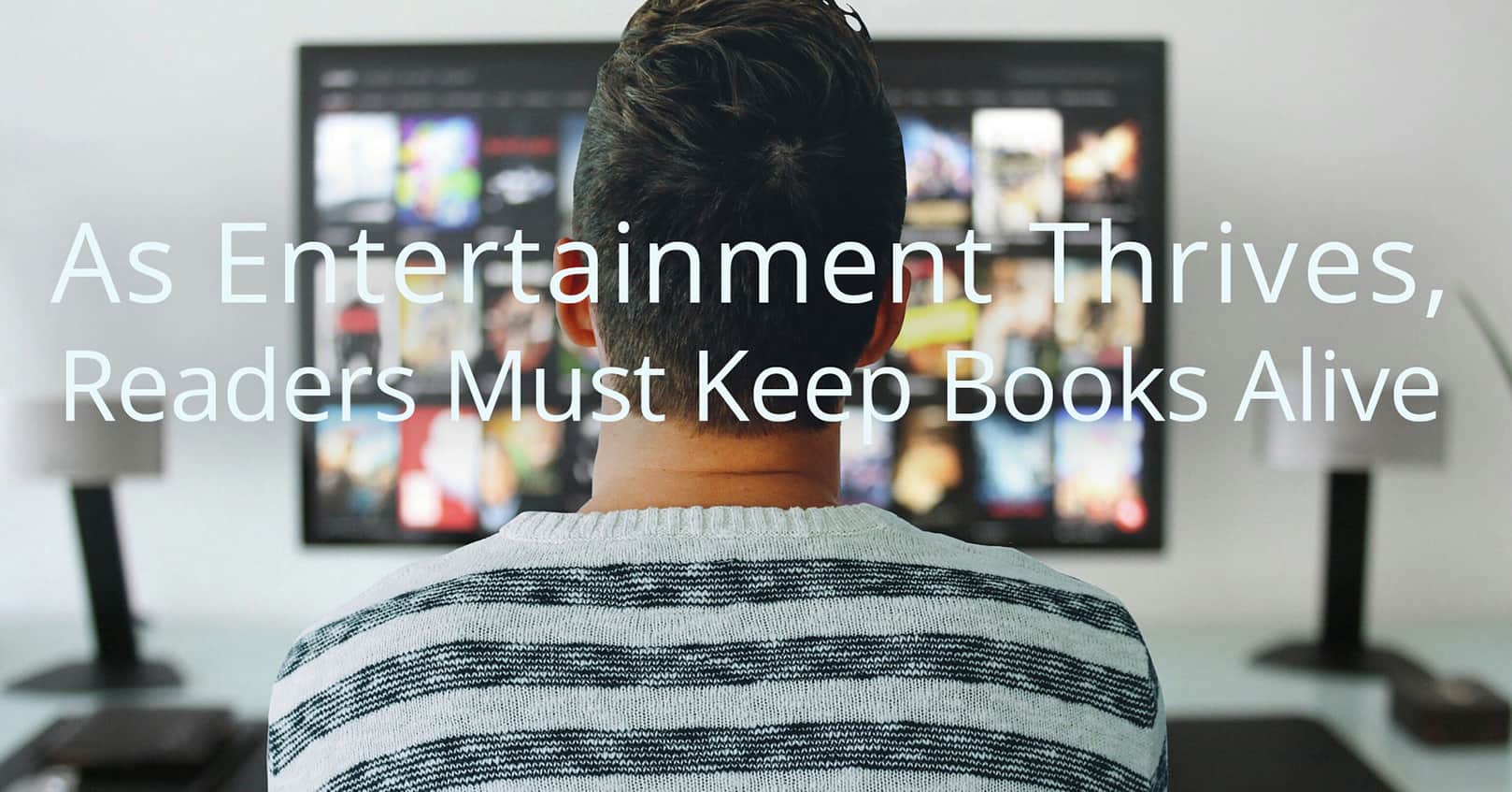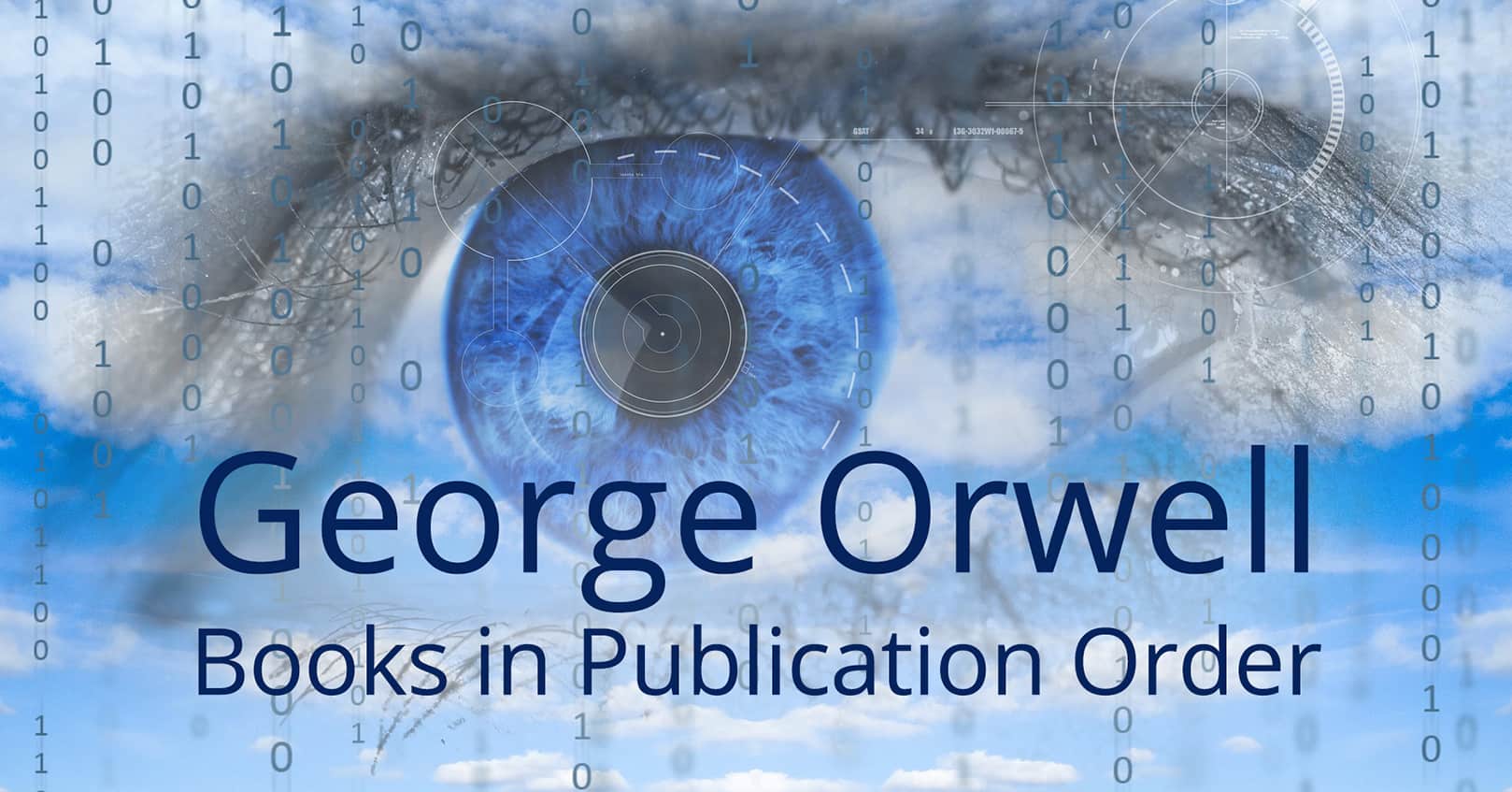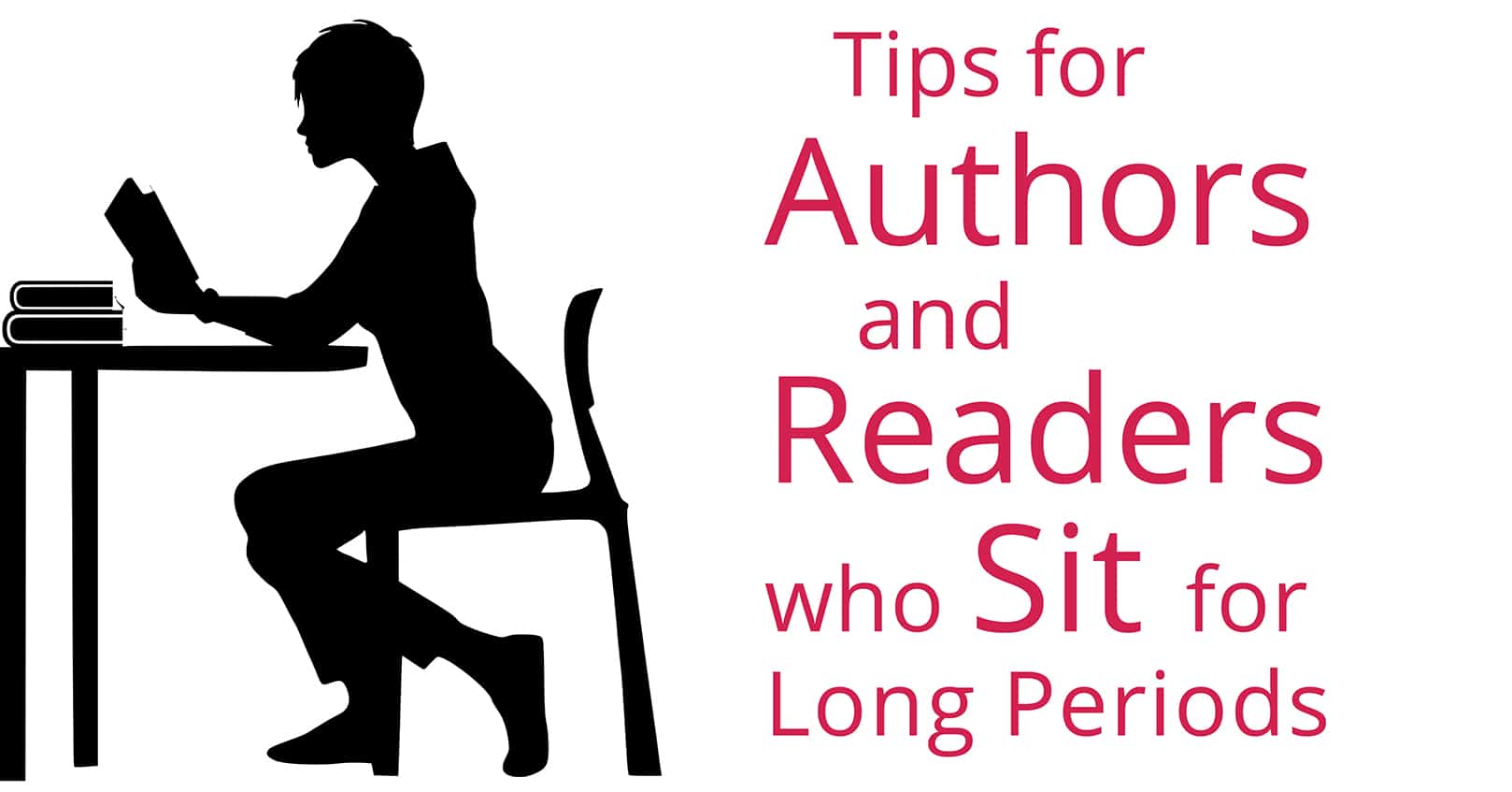
You’ve likely heard the speculation and assertions going around about the rise of technology and the resulting demise of books. People have increasing options for entertainment these days, and plenty of folks don’t do much book reading unless they have to. Sure.
Nevertheless, increasing options for entertainment isn’t a new phenomenon.
Take motion pictures and television for example. When the television was invented, people worried about what would happen to Hollywood and the silver screen. Why would anybody bother getting up and going out to the movies anymore when most of those people would have screens to entertain them right in the comfort of their homes?
Yet, people kept on going to the movies anyway.
Today, even with the availability of streaming services and Blu-ray discs, and our ability to watch movies on our TVs, tablets, and smartphones, movie theaters are still around. Getting up and going out to buy buckets of buttery popcorn to munch on while taking in motion pictures on huge screens with big sounds in the company of fellow motion picture fans gives people an experience they can’t get by watching a flick on their tablet or phone.
I’m of the same mind as other readers who believe that people who truly love to read books are going to (you guessed it) read books. It gives us an experience we simply don’t get from TV, movies, video games, social media, and other forms of entertainment.
Besides how enjoyable they are to read, books help us to strengthen our reasoning and critical thinking skills, to keep our imaginations sharp, to become more empathetic human beings, to see and consider ideas from different angles, and to become better at expressing our own ideas through words when we need to write or articulate.
That’s not an exhaustive list of the benefits of reading, by the way.
As entertainment options increase, it becomes more important for readers to stress and demonstrate the value and need for books, especially to children. When I was growing up, my parents made sure my siblings and I had a TV and movies we could watch. They bought us toys, sporting equipment, and video games. And they bought us books. They took us to the public library, where we each checked out books with our own library cards. They started a reading club where the whole family participated. My parents sat down in the living room and spent quality time absorbed in books, so my siblings and I saw our mom and dad reading, not just using all of their leisure time to veg in front of the tube.
Now, even with the various options my brothers and sister and I have for entertainment and learning, we still read books.
So, fellow book lovers, as technology advances and entertainment thrives, let’s keep books alive. Let’s keep books on our shelves at home and at the ready on our e-readers, tablets, and phones. We’re even free to turn on audiobooks to listen to when our hands and eyes are otherwise occupied.
Some folks out there have gotten this strange notion that books are becoming obsolete or something, but book devotees everywhere know better.

















While I agree with what you say, I think you missed a point or two. I often read books to compare the movies to the books. Mostly, movies are not as good. They have time constraints, special effects, etc. one of the main problems is that the person who writes the script usually isn’t the author and just misses the main points. There are exceptions, of course. Star Wars comes to mind. He original book was 126 pages, a Scholastic Book. It was charming. Who would have thought that 15 years later it would be made into one of the biggest epic movies of all time. I sure didn’t. Movies provide an experience we can share – or not – that envelops our senses in vision and sound. I use tv for old B/W movies and series and for news and distraction. When my babies were little (and close in age) I was at home for days on end with no adult conversation. It was a godsend. Books have always been my favorite. They can take you anywhere, anytime, on adventures you can only dream of, educate you, refine you, define you. I read widely and learn things I never knew I was interested in. Books are changing, but then, so is everything else. Books I get now are ebooks. I can no longer hold a bound book. My hands are weak. But I can hold an e-reader. I can control the type size and style. I can read. No matter what media we use, it all starts as an idea someone puts on paper, meant to be seen by others. How and what constitutes a book in the future remains to be seen. I don’t think books are going to disappear. We need them too much. But they will change.
Oh yes, Claudia, I might have covered a lot more points if I didn’t want to keep the article fairly short. I could talk books forever!
As for books and films, I’m almost as much of a cinephile as I am a bibliophile. While I’ve usually preferred the book versions of stories I’ve also seen as films, there have been times when I’ve liked the film versions better. Two examples are A Walk to Remember, based on the novel by Nicholas Sparks, and My Sister’s Keeper, based on the novel by Jodi Picoult.
There are also times when I enjoy a book and its film version rather equally. Scrooge (1951) based on Dickens’ A Christmas Carol and A Raisin in the Sun (1961) based on the play by Lorraine Hansberry are two examples. (I never saw a stage performance of that one, but I read the play.)
Then there are situations like Ben-Hur: A Tale of the Christ by Lew Wallace. I thoroughly enjoyed the original novel from 1880, preferring it over the epic 1959 film. I then read the 2016 adaptation of the novel written by Wallace’s great-granddaughter Carol, and while I thought it was quite good, I still prefer the original classic. But I could *not* get myself to watch the 2016 remake of the film. The couple of trailers I saw looked like the new film was trying way too hard, so I wouldn’t be able to take it seriously.
Most times these days, I can separate books from films and judge them as different, separate works with different creative techniques and requirements (and oftentimes different audiences they’re trying to reach). But I’ll admit that sometimes if I’m super-attached to a book, I’m reluctant to even attempt watching a film adaptation.
Then…not to mention the times when I watch a movie, love it, and find out later that it’s based on a book. So then I have to go back and read the book after the fact…
Anyway. I’ll stop myself from going on forever.
Books will always come first for me, whether as a paperback, ebook or audible. I’ve been reading since I learned. I’m 74
Paperbacks, ebooks, and audible! I think it’s awesome when readers of all ages can appreciate different book formats, Jackie.
I’ll admit I was once a reader who didn’t consider ebooks to be “real,” but then I got to thinking about what truly makes a book what it is: its *words.* Even print books would just be idle stacks of bound paper if they didn’t have words inside them. And the words are the same, whether we’re reading them from pieces of paper stitched or glued together inside a cover, from the screen of an e-reading device, or listening to the words from an audiobook.
I have four bookcases that are full, some books on top of the bookcases and on my dining room table, I have 5 Kindles and a tablet. The books are mostly over 60 years old and not allowed out of the house the Kindles are for away reading because the books are so old. I love my books.
Four bookcases and five Kindles—you’re a book lover for sure, Nancy!
Only a book lover will appreciate this, I bought a set of 48 books, the Waverley Novels printed in 1894. I started to read one and got to a page that hadn’t been cut yet, my eyes teared up and I said “Oh you poor old soul, nobody has loved you. You came to the right house.” I found a You Tube video showing how to fix that, I fixed that book and two others and I’m reading them and loving them.
Yes! I make “repairs” to books when I can, too! I’m a firm believer that books need loving homes.